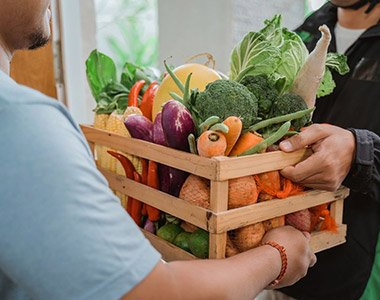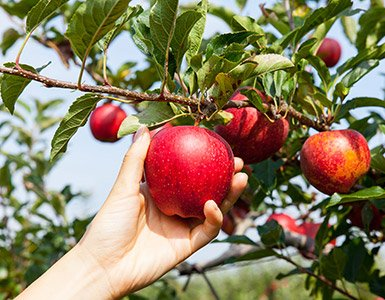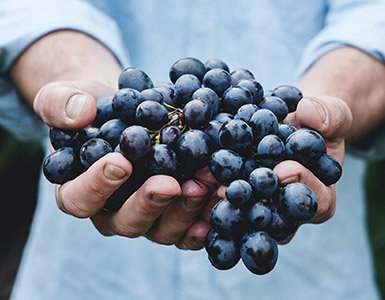
We stock a large collection of organic and healthy foods for you to order online, and make great and healthy lifestyle.
Take advantage of our fresh and organic food delivery.
Take advantage of our fresh and organic food delivery.
Take advantage of our fresh and organic food delivery.
Take advantage of our fresh and organic food delivery.
We offer organic fruit and vegetable delivery services, eggs, chilled and frozen, wholefoods,
beers and wines, pet foods, toiletries and household cleaning products.
Our organic foods are guaranteed to be the finest quality in the country!
You can also choose to keep a balance in the wallet or withdraw
You can also choose to keep a balance in the wallet or withdraw

From procuring 100% fresh, genuine and certified products from farmers to packaging, we carry out every task carefully and organically.

From procuring 100% fresh, genuine and certified products from farmers to packaging, we carry out every task carefully and organically.

From procuring 100% fresh, genuine and certified products from farmers to packaging, we carry out every task carefully and organically.
Organic foods typically cost more due to several factors. Organic farming requires more labor-intensive practices like hand-weeding and natural fertilizers, which increase production costs. Farms must also go through rigorous organic certification processes involving testing and annual fees. Additionally, without synthetic fertilizers and pesticides, yields are often lower than conventional farming methods. Organic farms are typically smaller and cannot benefit from economies of scale, and they need dedicated storage, transportation, and processing facilities to prevent contamination from non-organic products.
There are several compelling reasons to choose organic foods. Organic products are free from chemical pesticide residues and artificial additives, making them a healthier choice. They also support environmental protection by preserving soil, water sources, and biodiversity. Organic foods may contain higher levels of certain nutrients and support sustainable agriculture practices that promote ecological balance. Additionally, organic livestock operations provide better animal welfare conditions compared to conventional farming methods.
The taste of organic foods is subjective and varies between individuals. However, organic foods are often sold locally, which can contribute to better freshness and potentially improved taste. Some organic varieties are specifically bred for better flavor profiles, and the slower growth rates in organic farming may allow for better flavor development. The absence of pesticide aftertaste may also let the natural flavors of foods come through more clearly, though taste preferences ultimately depend on individual palates.
Organic foods are experiencing significant growth in popularity worldwide. The global organic food market grows approximately 5-10% annually, with more consumers understanding the health and environmental benefits. Organic products have expanded from specialty health food stores to major supermarkets and online platforms. The range of organic products has diversified from fresh produce to processed foods and beverages. While developed countries show higher adoption rates, developing nations demonstrate growing potential for organic food consumption.
The organic food movement has evolved significantly over the past century. It emerged in the early 20th century as a response to industrialized agriculture practices. The term “organic agriculture” was formally introduced in the 1940s, marking a key milestone in the movement. During the 1970s and 1980s, national organic standards and certification systems began developing around the world. Large-scale commercial production started in the 1990s, and in the 21st century, organic foods entered the mainstream market with rapid global trade growth and increased consumer acceptance.
Purchasing organic foods online has become increasingly convenient. You can shop through specialized e-commerce platforms that focus exclusively on organic products, or use the organic food sections available on major supermarket apps and websites. Many direct-to-consumer platforms allow you to order fresh produce directly from organic farms. When buying online, always check for proper certification labels and supplier credentials, pay attention to delivery times and freshness guarantees, compare prices with customer reviews, and understand the platform’s return and refund policies before making purchases.
If you prefer to send us a message, please complete
the form below and we will get right back to you.


Call Us Now

Email Us

Visit Us
Copyright RAYHOPE GLOBAL MARKETINGA © 2025 All rights reserved